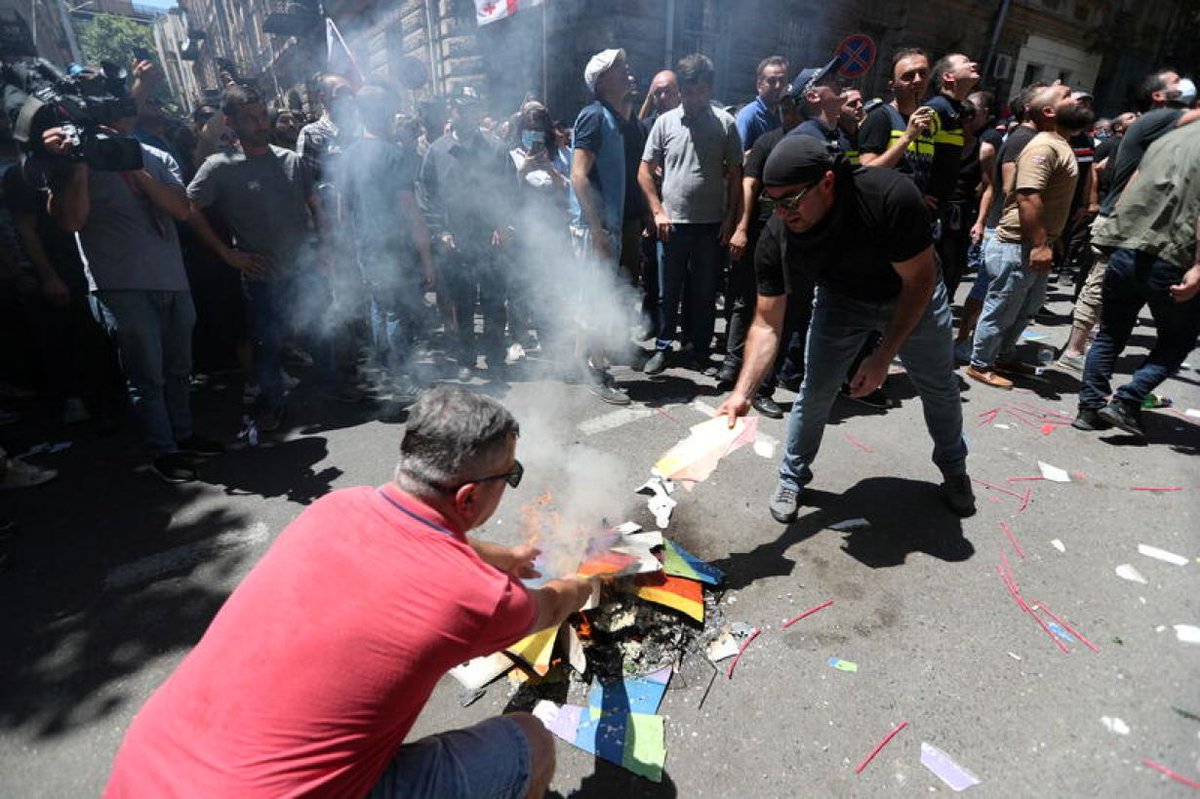
LGBT activists in Georgia cancelled a Pride march in the capital Tbilisi after violent attacks from right-wing groups July 5. Activists began five days of Pride celebrations last week which were to culminate in a “March for Dignity” in central Tbilisi, despite opposition from the Orthodox Church and conservatives who said the event had no place in Georgia. But as marchers were gathering, they were set upon by counter-protesters, who ransacked the office of the organizers. “The situation is really bad,” Tbilisi Pride director Giorgi Tabagari told the Thomson Reuters Foundation by phone, saying he is still being stalked and threatened by mobs, and that some members of his team have gone into hiding in fear for their lives. (EuroNews, Openly)
Photo: Openly





Scuffles in Georgia’s Parliament over cameraman’s death
Police in Georgia ejected dozens of people from Parliament after journalists and opposition lawmakers tried to force their way into the lower house in protest of a news cameraman’s death. Protesters were demanding Prime Minister Irakli Garibashvili resign following the death of 37-year-old Alexander Lashkarava. The cameraman was “found dead at home by his mother” July 11, six days after he was severely beaten by right-wing demonstrators trying to block an LGBTQ pride event in Tbilisi. (CNN)
European rights court: Georgia complicit in anti-LGBT violence
The European Court of Human Rights on Dec. 16 held against Georgia in a case concerning a 2013 attack on LGBT demonstrators in the capital city Tbilisi.
Amidst threats of a counter-demonstration by ultra-conservative groups and clergy, senior officials of the Ministry of the Interior had guaranteed the safety of the applicants, a group of 35 Georgian nationals and two LGBT rights advocacy groups, during a 20-minute silent vigil on the International Day Against Homophobia.
On the day of the demonstration, May 17, 2013, the applicants were attacked at Pushkin Square by some 40,000 counter-demonstrators wielding sticks, stones, and batons, and hurling homophobic slurs and death threats. Following an inquiry by the Ministry of the Interior, criminal proceedings resulted in the acquittal of four accused in the violence, and imposition of a fine on four others. One proceeding is still pending.
The Court held unanimously that Article 3 (prohibition of inhuman or degrading treatment) and Article 11 (freedom of association) in conjunction with Article 14 (prohibition of discrimination) of the European Convention on Human Rights had been violated, as authorities had failed to take proper measures to protect the applicants’ right to freedom of association despite knowing the risks associated with the tension-fraught event. (Jurist)